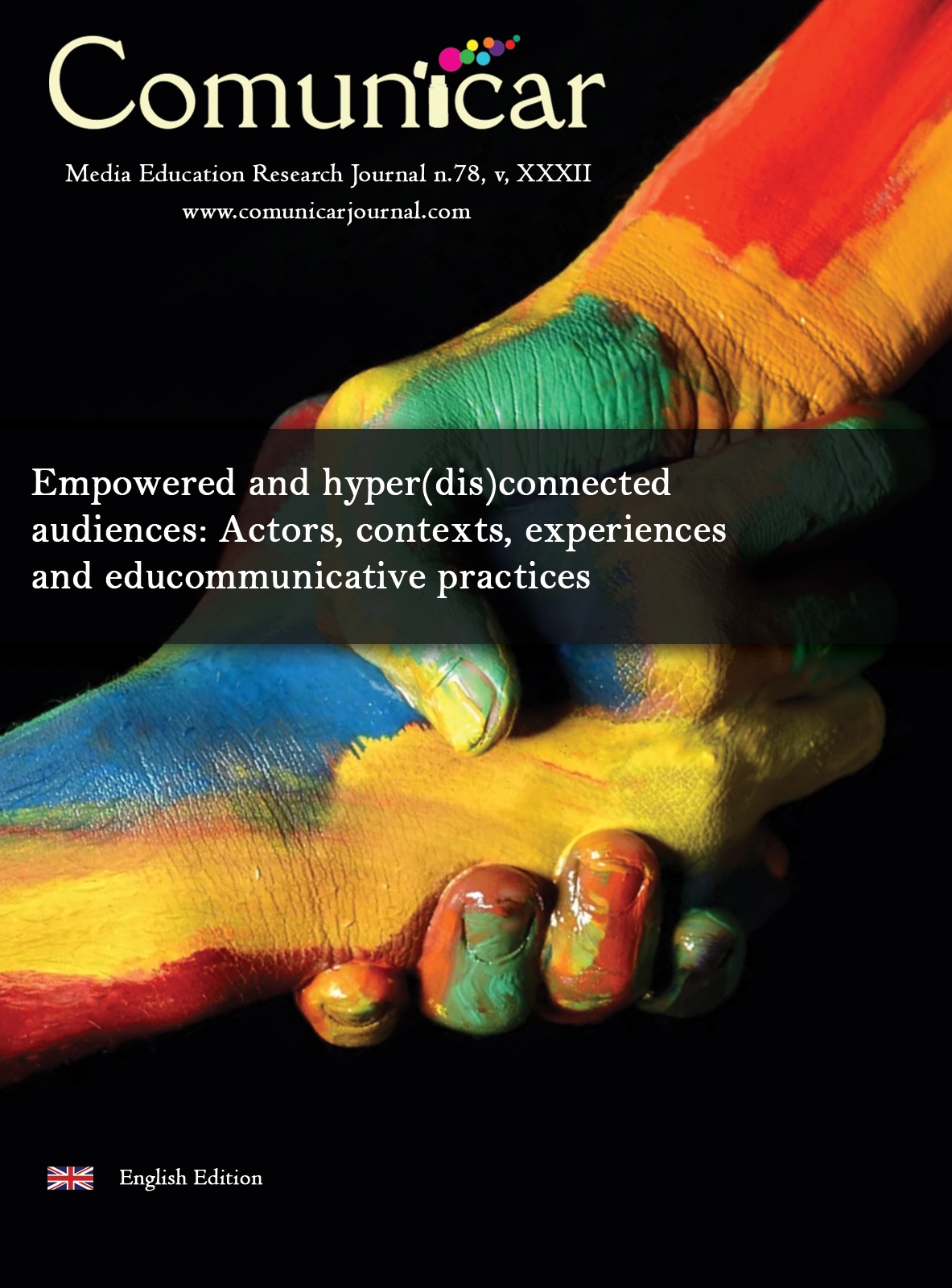Feminism, gender identity and polarization in TikTok and Twitter
IF 5.1
1区 文学
Q1 COMMUNICATION
引用次数: 7
Abstract
The potential of social media to create open, collaborative and participatory spaces allows young women to engage and empower themselves in political and social activism. In this context, the objective of this research is to analyze the polarization in the debate at the intersection between the defense of feminism and transsexuality, preferably among the young public, symbolized in the use of the term “TERF”. To do this, the existing communities on Twitter and TikTok on this subject have been analyzed with Social Network Analysis techniques, and the presence of young people in them. The results indicate that the debates between both networks are not very cohesive, with a highly modularized structure that suggests isolation of each community in itself. For this reason, it can be considered that the debate on sexual identity has resulted in a strong polarization of feminist activism in social media. Likewise, the positions of transinclusive feminism are very majority among young people, which reinforces the idea of an ideological debate that can also be understood in a generational perspective. Finally, a differential use between both social networks has been identified, where TikTok is a less partisan and more dialogical network than Twitter, which leads to discussions and participation in a more neutral tone. El potencial de las redes sociales para crear espacios abiertos, colaborativos y participativos ha permitido involucrar y empoderar a las mujeres jóvenes en el activismo político y social. En este contexto, el objetivo de esta investigación se centra en el análisis de la polarización que se produce en el debate de las redes sociales en la intersección entre la defensa del feminismo y de la transexualidad, preferentemente entre el público joven, simbolizada en el uso del calificativo «TERF». Para ello, se han analizado las comunidades existentes en Twitter y TikTok mediante técnicas de Análisis de Redes Sociales, y la presencia de los y las jóvenes en ellas. Los resultados indican que los debates en ambas redes son poco cohesivos, con una estructura altamente modularizada que sugiere aislamiento de cada comunidad en sí misma. Por todo ello, puede considerarse que el debate sobre la identidad sexual tiene como resultado una fuerte polarización del activismo feminista en las redes sociales. Asimismo, las posturas del feminismo transinclusivo son muy mayoritarias entre las personas jóvenes, lo que refuerza la idea de un debate ideológico en el seno del movimiento feminista que también puede entenderse en clave generacional. Por último, ha podido constatarse un uso diferencial entre ambas redes sociales, donde TikTok se muestra en esta temática como una red menos partisana y más dialógica que Twitter, pues conduce a discusiones y participaciones en un tono más neutro.抖音和推特上的女权主义、性别认同和两极分化
社交媒体创造开放、协作和参与性空间的潜力,使年轻女性能够参与政治和社会活动,并赋予自己权力。在此背景下,本研究的目的是分析在捍卫女权主义和变性之间的争论中的两极分化,尤其是在年轻公众中,以“TERF”一词的使用为象征。为了做到这一点,Twitter和TikTok上关于这个主题的现有社区已经用社交网络分析技术进行了分析,以及其中年轻人的存在。结果表明,两个网络之间的争论不是很有凝聚力,具有高度模块化的结构,这表明每个社区本身都是孤立的。因此,可以认为,关于性别身份的争论导致了社交媒体上女权主义活动的强烈两极分化。同样,跨包容性女权主义的立场在年轻人中占绝大多数,这加强了意识形态辩论的观点,这种辩论也可以从代际角度来理解。最后,这两个社交网络之间的使用差异已经被确定,与Twitter相比,TikTok是一个不那么党派化、更具对话性的网络,这使得讨论和参与的语气更加中立。“社会的潜力”是指“创造空间”、“参与者的协作”,允许“参与者的参与”、“参与者的参与”、“参与者的参与”、“参与者的参与”、“参与者的参与”、“参与者的参与”jóvenes和“活动的参与”político。在这一背景下,我们的目标是在这一领域investigación在这一领域análisis在这一领域polarización在这一领域产生了在这一领域的辩论,在这一领域intersección在这一领域,我们为女权主义辩护,为变性者辩护,在这一领域提供优惠,在这一领域,我们为“TERF”提供了认证。在Twitter和TikTok中,人们可以通过社交网站Análisis和社交网站jóvenes与社交网站分享Twitter上的信息。结果是,我们的辩论是关于我们的团结,我们的辩论是关于我们的团结,我们的结构是关于我们的模块化,我们的社会是关于我们的团结的。可怜的你,我要考虑的是,我要讨论的问题是,我们的性别关系是什么?我们的性别关系是什么?我们的性别关系是什么?亚洲主义,女权主义的姿态,跨包容主义,女权主义的姿态,跨包容主义,女权主义的姿态,跨包容主义,女权主义的姿态,跨包容主义,女权主义的姿态,跨包容主义,女权主义的姿态,跨包容主义,女权主义的姿态,跨包容主义,女权主义的姿态,跨包容主义,女权主义的姿态,跨包容主义,女权主义的姿态,跨包容主义,跨包容主义,跨包容主义,跨包容主义,跨包容主义,跨包容主义,跨包容主义,跨包容主义,跨包容主义,跨包容主义,跨包容主义,跨包容主义,跨包容主义。上月的,ha podido constatarse联合国uso diferencial之间安巴红优势种,在TikTok se具体esta tematica科莫una红色高看partisana y mas dialogica Twitter, pu有助可按y participaciones en联合国tono mas中子。
本文章由计算机程序翻译,如有差异,请以英文原文为准。
求助全文
约1分钟内获得全文
求助全文
来源期刊

Comunicar
Multiple-
CiteScore
10.10
自引率
5.40%
发文量
40
审稿时长
20 weeks
期刊介绍:
Comunicar specialized in educommunication: communication and education, ICT, audiences, new languages...; monographs specialized in current issues. Double format: printed and online; digitally, accessible in full text, free of charge, for the entire scientific community and researchers around the world. Coeditions printed in Spanish and English for the whole world. Published by Oxbridge Publishing House which collaborates with many international centres and universities.
 求助内容:
求助内容: 应助结果提醒方式:
应助结果提醒方式:


